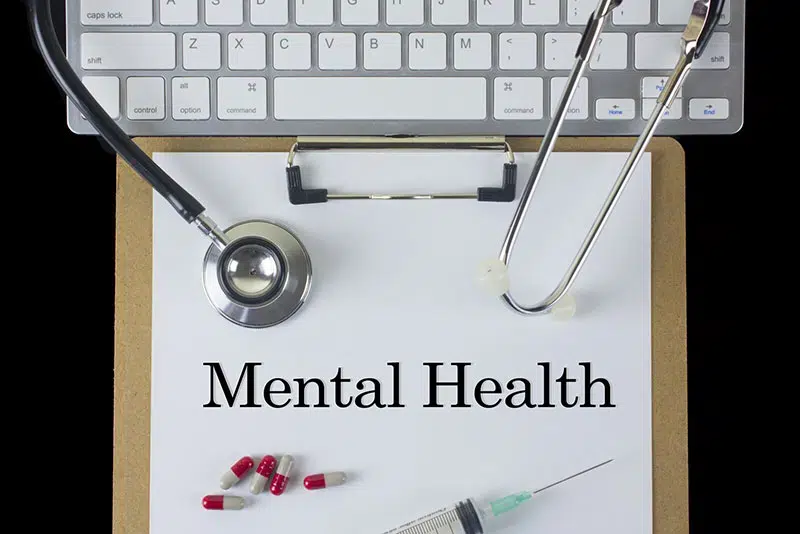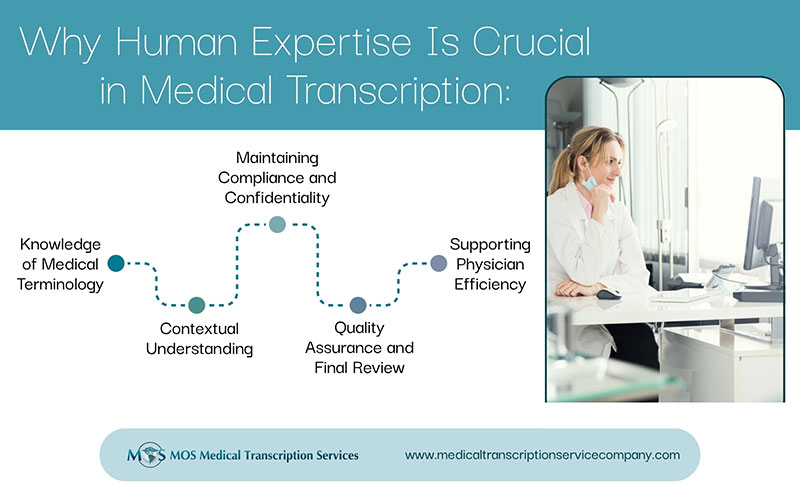
Table of Contents
Mental health is a crucial element in an individual’s wellbeing. Behavioral health practitioners need to provide the highest quality of care, which includes proper documentation of their mental health. Proper documentation is essential to provide a comprehensive understanding of the individual’s condition, which plays a crucial role in the overall treatment and effective communication between healthcare providers. Behavioral health transcription services provide a convenient and efficient way to document and store client interactions. A medical transcription service provider that has experience and expertise in transcribing mental health-related content can ensure accurate and timely written documentation of audio or video recordings of mental health sessions or consultations. Let’s explore the important aspects of mental health documentation, its types, and best practices.
Importance of Accurate Documentation
Comprehensive and accurate mental health documentation is vital for delivering high-quality care to clients. Notes must be accurate and factual to monitor progress and treatment outcomes, ensuring evidence-based and personalized care. Documentation also creates a detailed record of the treatment process, which is essential to meet legal and ethical requirements, safeguarding both the client and the behavioral health specialist.
Accurate documentation facilitates effective communication and collaboration among healthcare providers. It enables informed decision-making by ensuring that everyone involved in the client’s care has access to pertinent information. This promotes seamless coordination and continuity of care, leading to enhanced treatment outcomes.
Moreover, mental health documentation holds significant value for research and statistical analysis. By documenting data, trends can be identified, treatment effectiveness can be evaluated. By maintaining thorough and precise documentation, providers can contribute to to research and advancement within the field.
Different Types of Mental Health Documentation
Mental health documentation includes various types of reports:
- Intake and assessment: Document a comprehensive assessment of the individual’s mental health, including: diagnostic impressions, presenting problems, evaluation of symptoms, mental status examination, previous treatments, and medications (with observable side effects if any). Intake forms provide a baseline for further assessment and help professionals gain a comprehensive understanding of the individual’s condition. The presenting problem or the reason for seeking mental health services should be clearly stated. This could include symptoms, behaviors, or challenges that the individual is experiencing. The assessment should also include substance use information physical or mental health conditions. Any assessment tools or scales used, current providers, and relevant demographic information should be documented.
- History: Document relevant personal and medical history, including any previous mental health diagnoses, treatments, medications, and family history of mental health issues. Record any pertinent physical health conditions as reported by the client or their significant support person. Document the client’s past treatment, including details about providers involved, therapeutic approaches used (such as medications or psychosocial treatments), and the client’s response to those treatments. Also, include any instances of inpatient admissions. If available, incorporate information from other clinical sources, such as previous medical and mental health records, relevant psychological testing, or consultation reports.
- Treatment plan: Outline the proposed or ongoing treatment plan, including current diagnosis, therapeutic interventions and options, goals and objectives, modalities and frequency of use, and methods for monitoring and measuring progress. The treatment plan could involve individual therapy, medication management, group therapy, or other interventions.
- Progress notes: Mental health progress notes provide the ongoing record of the individual’s condition, clinical interventions attempted, response to the interventions and care provided, any changes in symptoms or behaviors, and the progress the individual is making toward their goals and objectives. Observations, insights, and collaboration with the individual during sessions should be included. By serving as a chronological record of the client’s treatment, progress notes facilitate coordination of care and communication between team members, and provide a valuable source of information for future sessions and treatment planning.
- Ongoing care: If a patient requires a referral or needs to transfer to another provider for any reason, this must be thoroughly documented with informed consent. The mental health specialist should also document the discussion on the potential benefits and risks of the new behavioral health program or service.
- Discharge summaries: Discharge summaries are prepared when the treatment comes to an end or when transitioning to another provider. This form should include the diagnosis at discharge, detailed reasons for the discharge, progress toward treatment goals, potential risk factors at the time of discharge, and referrals or resources that could benefit the client. Discharge summaries help ensure smooth transition and continuity of care.
Thus, each mental health documentation type serves a specific purpose and captures different aspects of the client’s treatment journey. Relying on a medical transcription services company that specializes in the field is a practical way for providers to ensure quick and accurate transcription to maintain timely and efficient record-keeping.
Best Practices for Mental Health Documentation
Following best practices for mental health documentation is crucial for providing high-quality care, meeting legal and ethical requirements, facilitating communication and collaboration, monitoring progress, contributing to research, managing risks, and promoting professional development.
- Be objective and factual: Stick to the facts and avoid subjective interpretations or assumptions. Use clear and concise language to describe observations, interventions, and client responses.
- Be comprehensive but concise: Include all relevant information while keeping the documentation concise and focused. Use headings, bullet points, and subheadings to organize information and enhance readability.
- Demonstrate medical necessity: Each billed service, except those provided solely for assessment or crisis intervention, must satisfy the criterion of Medical Necessity. Medical Necessity is defined by www.smchealth.org as follows: 1) The service aims to alleviate the impact of symptoms/behaviors associated with a diagnosed condition and the resulting functional limitations, or 2) The service is provided to prevent a worsening of those symptoms/behaviors or functional impairments (prevent deterioration) or to sustain the current level of functioning.
- Record in a timely manner: Document immediately after each session while the details are fresh in your mind. Waiting too long can lead to inaccuracies or omissions.
- Use standardized terminology: Utilize industry-standard terminology to ensure clarity and consistency in your documentation. This helps facilitate communication among professionals and reduces the risk of misinterpretation.
- Avoid jargon and abbreviations: While it’s important to use specialized language in mental health documentation, be mindful of using jargon or abbreviations that may be unfamiliar to others. Remember that documentation may be read by different professionals or reviewed by regulatory bodies.
- Review and revise: Regularly review your documentation to ensure accuracy, consistency, and compliance with regulations. Update treatment plans and progress notes as needed to reflect the client’s evolving needs and goals.
- Document informed consent: Informed consent is a crucial aspect of mental health documentation, ensuring ethical practice, legal compliance, and client autonomy. Mental health professionals must provide clear and comprehensive information, obtain voluntary consent, document the process appropriately, and engage in ongoing discussions to maintain a client-centered and transparent therapeutic relationship.
- Maintain confidentiality: Respect client privacy by following established guidelines for handling and storing sensitive information. Use encrypted systems and avoid discussing client details in public spaces.
Following best practices and ensuring effective mental health documentation plays a vital role in providing quality care, meeting legal requirements, promoting collaboration, and contributing to advancement within the field. Behavioral health transcription services provide a convenient and efficient way to optimize your documentation practices and maintain quality records. Make sure to choose a HIPAA compliant medical transcription company as behavioral health documentation is subject to more stringent confidentiality standards compared to other types of documentation.


